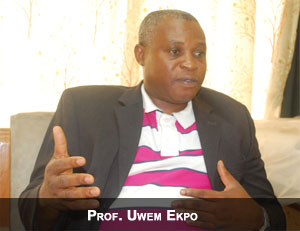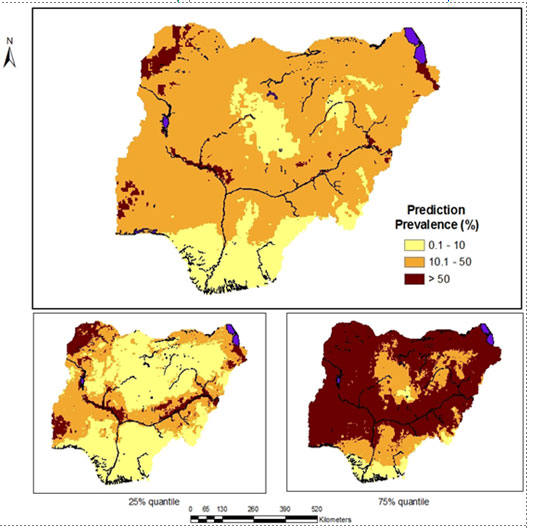
Government has been charged to improve human health by controlling Neglected Tropical Diseases (NTDs), as the world developmental paradigm has now shifted from the Millennium Development Goals (MDGs), which only focused on eradicating malaria, to the Sustainable Development Goals (SDGs), which encompasses eradicating diseases including NTDs.
The Head, Department of Pure and Applied Zoology, College of Biological Sciences (COLBIOS) of the University, Professor Uwem Ekpo, made this call while speaking on the progress of Senior Fellowship awarded him by the European Foundation Initiatives for Neglected Tropical Diseases (EFINTD). Professor Ekpo described NTDs as those diseases that are neglected by the government in terms of funding and research, because they are perceived as not being killer-diseases, hence they are not accorded the necessary priority like diseases such as malaria and HIV/AIDS. He said that there were 17 of such diseases to include Schistosomiasis and soil-transmitted helminthiasis, which was the area of concentration in his current Fellowship that won him the award, having previously developed geographical information system and database for Schistosomiasis in Nigeria. Other NTD endemic in Nigeria are Onchocerciasis, Lymphatic filariasis; and Trypanosomiasis; among others.

Professor Ekpo said that Ogun State was one of the states with the high prevalence level of Schistosomiasis and Soil-transmitted Helminthiasis in the country, because of the existence of numerous rivers in the state, saying that survey had shown that children in places like Totoro, Lafenwa, Ibara and Ita-Iyalode within the Abeokuta metropolis, suffered from Schistosomiasis. He disclosed further that Schistosoma species have a complex life cycle that alternate between humans and freshwater snails, thus causing infection, upon having contact with contaminated water. The adult worms that live in blood vessel itself do not cause damage. Rather, he said the large volume of eggs produced by the worms, were responsible for the damage to human body. He stated that symptoms of the diseases include passing-out of blood in the urine or human stools, renal failure, bladder cancer, among others, while assuring that with the efforts done so far on the awareness for NTDs, government now treat school children of Schistosomiasis and Soil-transmitted Helminthiasis in the country, at least once a year, with the use of the drugs, Praziquantel and Albendazole, free of charge. He listed other efforts at controlling the disease to comprise health education and innovative methods through board games, adding that infants, nursing mothers and pregnant women were prone to infection.

Professor Ekpo said that efforts were being made to educate local people on the causes of the disease, as they wrongly believed that it was caused by human contact with dog’s urine, hence the name, ‘Atosi-aja’, in Yoruba language. He noted that Schistosomiasis and Soil-transmitted Helminthiasis could be controlled by de-worming a child at least, once a year, having access to safe water, improved hygiene, proper sanitation and good health education. He also called on the government to help provide access to medical treatment in remote communities in the country, by ensuring a reasonable and accessible primary health care and health insurance for all.
Professor Ekpo, however, cautioned inhabitants of Ogun State and Nigerians in general on the health hazards of using Schistosoma-infected water, to avoid the aliment and stop the habit of open defecation which promote the transmission of helminthiasis. He said the European Foundation Initiatives came up in 2008, through the consortium of five European Foundations namely: Volkswagen Foundation (Germany), Foundation Merieux (France), Calouste Gulbenkian Foundation (Portugal) Nuffield Foundation (United Kingdom) and Fondazione Cariplo (Italy), with special interest in the capacity development of African scientists in the areas of Neglected Tropical Diseases (NTDs) Control.
